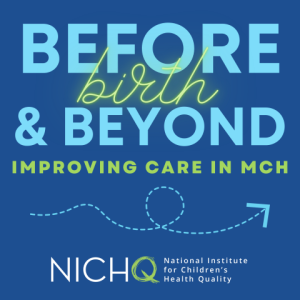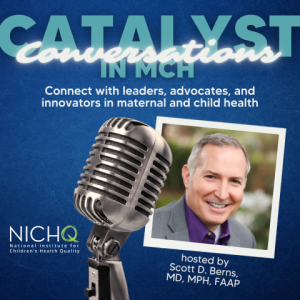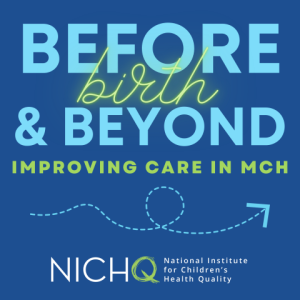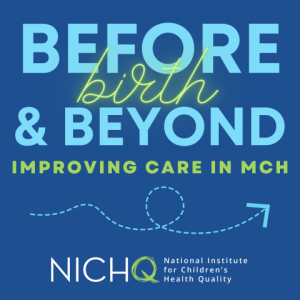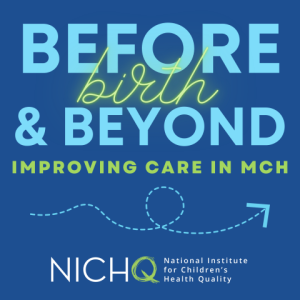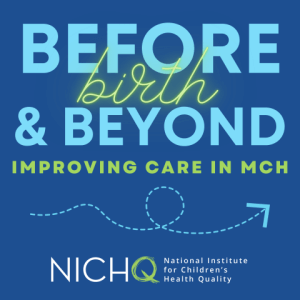Join NICHQ on our equity journey
Health in the U.S. is not equitable. Not everyone has access to healthcare, especially healthcare that is culturally relevant and free from bias. Because not everyone has equal opportunity to access the resources needed for health and well-being, disparities are pervasive from the earliest years of life.
Many NICHQ projects aim to achieve health equity in their target communities. NICHQ defines health equity as the state in which everyone in a population can attain their full health potential, and no one is disadvantaged because of social position or any other socially defined determinant of health, such as race, ethnicity, income, educational level, and housing.
While personal definitions of health equity will vary, checking your definition against the criteria set forth in the Robert Wood Johnson Foundation’s report on health equity will help ensure you’re starting from a similar foundation as other stakeholders, which can spark collective action.
What is Health Equity? Criteria from the Robert Wood Johnson Foundation:
- Does it reflect a commitment to fair and just practices across all sectors of society?
- Is it sufficiently unambiguous and concrete that it can guide policy priorities?
- Is it actionable?
- Is it conceptually and technically sound, and consistent with current scientific knowledge?
- Is it possible to operationalize for the purpose of measurement, which is essential for accountability?
- Is it respectful of the groups of particular concern, not only defining the challenges they face but also affirming their strengths?
- Does it resonate with widely held values in order to garner and sustain broad support?
- Is it clear, simple, intuitive, and compelling without sacrificing the other criteria, in order to create and sustain political will?

NICHQ’s Commitment to Equity
NICHQ is committed to achieving equity in all forms, including race, nationality, gender identity, gender expression, sexual orientation, and ability. Addressing health disparities and the structures that underlie them will take the concerted efforts of many individuals and organizations. Join us on our equity journey as we work to make our vision that “every child achieves their optimal health” a reality.
Equity Engagement
Enhanced Equity Offerings from NICHQ
Addressing the persistent inequities in our health systems will take the concerted efforts of many individuals—public health professionals, nurses, clinicians, policymakers, community advocates, and families, among others. We recognize that tackling racism and other forms of oppression must go beyond interventions at an individual level. Truly equitable health systems advance equity of historically marginalized groups, and health systems must purposefully reconstruct their systems to be rooted in equity.
Although it’s important to identify the health disparities rooted in the structures of our systems, change can begin with each of us.

Listen & Learn
We’ve highlighted these specific NICHQ podcast episodes for their relevance to strengthening your equity initiatives and building your equity resources.
NICHQ News
Stay in the Loop
Get notified of new resources, initiatives, webinars, and podcast episodes directly in your inbox with our monthly newsletter.
Equity Tools to Improve Your Organization
Getting Started with Land Acknowledgments
Land acknowledgements can demonstrate respect for the original stewards of the land where we reside and gather. They can be an important tool for Natives and non-Natives to facilitate both honoring the past and acknowledging its impact on the present and future. Factors like where you live and if other equity practices (i.e. land acknowledgements and pronoun sharing) are incorporated into the other parts of your life can affect how fluidly you bring them into your professional role. By practicing inclusive meeting culture, we have an opportunity to positively impact our participants and the communities we serve.
The Equity Systems Continuum
Building on the work of Stacy Scott, Ph.D., MPA, VP of Health Equity Innovation, and the Global Infant Safe Sleep (GISS) Center, NICHQ has developed an evidence-informed conceptual framework known as the Equity Systems Continuum to describe and define the systems that individuals and organizations currently operate within: Supremist-Designed Systems, Savior-Designed Systems, Ally-Designed Systems, and Equity-Empowered Systems. By giving each system a name and definition, an organization can identify where they are along this continuum, consider where their current approaches have succeeded and failed, and determine what actions need to be taken to improve along the continuum.
